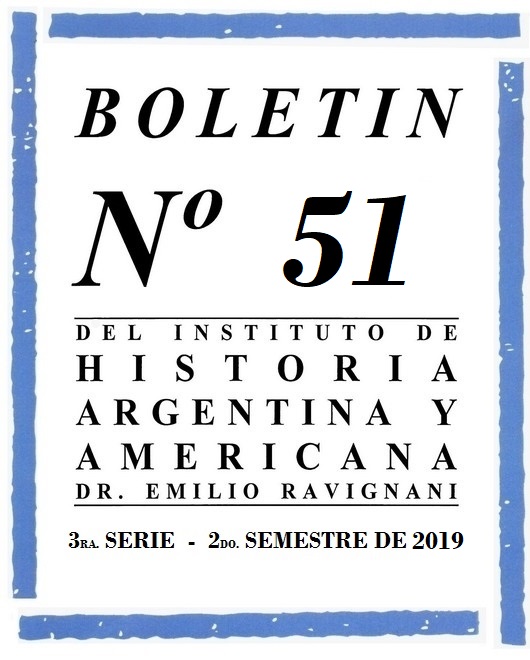Mutual Aid, Union Solidarity, and Gender among Railway Workers. Argentina, 1912-1917
Abstract
This article seeks to analyze trade union mutual aid practices, based on the particular case of the railroad workers organized in La Fraternidad and the Federación Obrera Ferrocarrilera, between 1912, year of the enginemen first general strike, and 1917, when the first railroad workers national strike occurred. Its purpose is to consider how and under which circumstances trade union solidarity was put into practice and took different forms that mobilized and activated links forged in a dispersed labor community, although interlaced by familiar, affective and camaraderie relationships. The article also invites to reconsider the importance that mutualism had in the Argentinian union life at the beginning of the 20th century, in a context in which the first labor laws were starting to be discussed and implemented.Downloads
The copyright is transferred to the Boletín, but the authors may retrieve them and reproduce their work in other media or formats by means of a written request to the Editorial Committee. In such cases, the Boletín will be cited as the first publication of the work.
The works are licensed under a Creative Commons Attribution-NonCommercial 4.0 International License, which allows others to share the work with an acknowledgment of their authorship and initial publication in this journal.
Also, by written request to the Editorial Committee of the Boletín, the authors may separately establish additional agreements for the non-exclusive distribution of the version of the work published in this journal (for example, placing it in an institutional repository or publishing it in a book), with an acknowledgement of its initial publication here. No commercial uses are allowed.



















